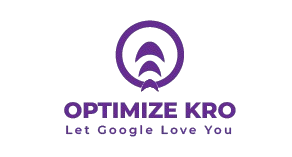In today’s competitive real estate market, standing out is essential for attracting clients and growing your business. One of the most effective ways to ensure that your real estate business remains visible to local prospects is through local search engine optimization (SEO). Local SEO is a highly specialized branch of SEO that helps businesses increase their visibility in local search results, especially for geographically-targeted queries.
As a real estate agent, you likely rely heavily on local clients to close deals, and this is where local SEO can significantly help you. With more and more people turning to search engines like Google to find homes, apartments, or commercial properties in their area, optimizing your online presence can be the key to your success.
In this article, we’ll walk you through the essential elements of local SEO for real estate agents, and provide practical tips and strategies that can boost your local search rankings, increase web traffic, and help you convert more leads into clients.

What is Local SEO?
Local SEO is the process of optimizing your online presence to attract more business from relevant local searches. These searches often include specific geographic terms such as “real estate agents near me” or “homes for sale in [city name]”.
The core idea behind local SEO is to ensure that search engines, particularly Google, can easily connect your business to the searcher’s local area. This involves improving your website’s technical SEO, creating relevant local content, managing your online reputation, and ensuring that search engines have accurate and up-to-date information about your business.
For real estate agents, this could mean optimizing your website to appear in Google’s Local Pack, on Google Maps, and in search results when potential clients search for real estate services in your area.
Key Local SEO Ranking Factors
Google uses a wide range of factors to determine the local ranking of businesses in search results. Here are some of the most important ranking factors for real estate agents:
- Google My Business Profile: The most significant factor in local SEO is having a complete and optimized Google My Business (GMB) listing.
- Local Keywords: Targeting location-specific keywords is vital in local SEO. For real estate agents, this includes city names, neighborhoods, or landmarks in your area.
- On-Page SEO: Optimizing your website’s content, meta descriptions, headers, and images with location-specific terms.
- Citations: Ensuring that your business name, address, and phone number (NAP) are consistent across all online directories.
- Reviews: Positive reviews on platforms like Google My Business, Yelp, and Zillow influence local rankings.
- Backlinks: High-quality local backlinks from local publications, other businesses, or real estate-related websites.
- Mobile Optimization: Since many users search for local businesses on mobile devices, mobile optimization is crucial for local SEO.
Why Local SEO is Crucial for Real Estate Agents
Real estate is an inherently local business. You don’t want to attract leads from outside your service area; instead, you want to target clients who are actively searching for homes or properties within your specific location.
Increased Visibility in Local Search
Real estate agents who optimize for local SEO are more likely to show up in searches when someone is looking for properties in their geographic area. For example, when someone searches for “homes for sale in [city name],” a well-optimized agent will show up in the local search results.
Better Client Targeting
Local SEO allows you to target clients who are more likely to engage with your services. This means that your marketing efforts are focused on prospects who are actively searching for real estate services in your area.
Enhanced Google Maps Presence
When you have a well-optimized Google My Business listing, your business can show up in Google Maps. This is particularly beneficial for users who are on the go and want to find a nearby agent or property.
Higher Conversion Rates
Local SEO helps you attract highly-targeted leads who are more likely to convert. People searching for real estate services near them have a clear intent to make a purchase, meaning they are more likely to engage with your business.
How to Optimize Your Real Estate Website for Local SEO
Now that you understand the importance of local SEO, let’s dive into the steps you can take to optimize your real estate website and increase your chances of appearing in local search results.
1. Create and Optimize Your Google My Business Profile
Your Google My Business (GMB) listing is one of the most critical aspects of local SEO. It directly influences your visibility in Google’s local search results and Google Maps.
How to Optimize Your Google My Business Listing:
- Complete Your Profile: Make sure all the information on your GMB listing is accurate and up-to-date, including your address, phone number, website, business hours, and service area.
- Add Photos: Listings with photos are more likely to get clicks. Upload high-quality photos of your properties, office, and team.
- Collect Reviews: Encourage clients to leave positive reviews on your GMB profile. Responding to reviews helps improve engagement and shows potential clients you value feedback.
- Use Posts: Google My Business allows you to post updates and special offers. Take advantage of this feature to share new listings, promotions, or events.
2. Optimize Your Website for Local Keywords
Targeting location-based keywords is essential for local SEO. For real estate agents, this means optimizing your website with the names of cities, neighborhoods, and even streets where you offer services.
Tips for Keyword Optimization:
- Use Local Keywords in Titles and Meta Descriptions: Make sure your location-based keywords are used in your title tags, meta descriptions, and headers.
- Create Location-Specific Pages: If you operate in multiple cities or neighborhoods, create dedicated pages for each location. This will help your website rank for local queries.
- Use Structured Data Markup: Implement schema markup to provide search engines with detailed information about your business, including your location, services, and listings.
3. Generate Local Citations
A citation is any mention of your business’s name, address, and phone number (NAP) on other websites or online directories. Consistent citations across multiple reputable sources are crucial for local SEO.
Where to Build Citations:
- Local Business Directories: List your business on platforms like Yelp, Yellow Pages, and local Chamber of Commerce websites.
- Real Estate Directories: Platforms like Zillow, Realtor.com, and Redfin can also help boost your visibility in local searches.
- Social Media: Ensure your NAP is consistent across all your social media profiles.
4. Encourage and Manage Reviews
Online reviews play a major role in local SEO, influencing both your rankings and your reputation. Positive reviews build trust and can help you stand out from the competition.
Best Practices for Managing Reviews:
- Encourage Reviews: Ask satisfied clients to leave reviews on Google and other review sites.
- Respond to Reviews: Show potential clients that you care about feedback by responding to both positive and negative reviews.
- Use Testimonials: Showcase positive client reviews on your website and social media channels.
5. Mobile Optimization
Most local searches are done on mobile devices, so ensuring that your website is mobile-friendly is crucial for local SEO. A mobile-optimized site is more likely to rank higher in local search results.
How to Optimize for Mobile:
- Responsive Design: Ensure your website adjusts to different screen sizes.
- Fast Loading Speed: Mobile users expect fast-loading websites. Use tools like Google PageSpeed Insights to check and improve your site’s speed.
- Clear Calls to Action: Make sure users can easily contact you, schedule a viewing, or inquire about listings on mobile devices.
Table: Local SEO Checklist for Real Estate Agents
| Task | Details |
|---|---|
| Google My Business Profile | Complete your profile, add photos, and encourage reviews. |
| Local Keyword Optimization | Use local keywords in titles, meta descriptions, and headers. |
| Create Location-Specific Pages | Develop pages for different cities, neighborhoods, or service areas. |
| Build Citations | List your business on local directories and real estate platforms. |
| Encourage Reviews | Ask clients for reviews and manage them actively. |
| Mobile Optimization | Ensure your website is mobile-friendly and fast. |
Frequently Asked Questions (FAQs) about Local SEO for Real Estate Agents
1. What are local SEO keywords?
Local SEO keywords are search terms that include a specific geographic location, such as “real estate agent in [city]” or “homes for sale in [neighborhood].” These keywords help search engines understand the geographical area your business serves.
2. How long does it take for local SEO to work?
Local SEO can take several weeks or even months to show significant results. However, optimizing your Google My Business profile and generating local citations can provide quicker visibility improvements.
3. How important are online reviews for real estate SEO?
Online reviews are very important for local SEO. Positive reviews can boost your rankings and attract more potential clients. They also help build trust with your audience.
4. Can I do local SEO on my own?
Yes, many aspects of local SEO, such as optimizing your Google My Business listing, creating localized content, and managing reviews, can be done by yourself. However, you may choose to hire an SEO expert if you need more advanced help.
5. What is the role of backlinks in local SEO?
Backlinks from reputable local websites can enhance your local SEO efforts. When local blogs, newspapers, or other businesses link to your website, it signals to Google that your site is a trusted local authority.
Conclusion
In conclusion, local SEO for real estate agents is a vital strategy for increasing visibility, attracting local clients, and growing your business. By focusing on optimizing your Google My Business listing, targeting local keywords, managing reviews, and building local citations, you can significantly improve your chances of ranking in local search results.
Adapting these strategies to your real estate business will help you attract more leads, convert clients, and build a solid online presence in your local area. Whether you’re just starting with local SEO or refining your current strategy, these techniques will help you stay ahead of the competition and drive more local traffic to your website.

Gulfam Qamar is a seasoned Local SEO expert with a proven track record of helping businesses boost their online visibility and dominate local search results. With deep expertise in Google Business Profiles, on-page optimization, and local citation strategies, Gulfam helps brands connect with nearby customers and grow sustainably. When he’s not optimizing websites, he’s sharing actionable SEO tips and insights to empower small businesses in the digital space.
